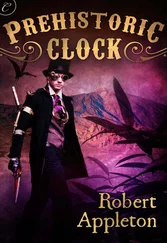AS YOU MAY have noted with some amazement, for a short time now, for a few pages, I have, without seeming to, been devoting myself heart and soul to my work. If I am still neglecting certain tasks that fall to me, if I am still at times guilty of absentmindedness, my goodwill can no longer be in doubt. We thought we had set out on the sort of adventure that never moves forward and is constructed ever so painstakingly around this assumption when suddenly things have changed: for once I have not shirked my duties; I have begun to take inventory of the crates just as Professor Glatt asked. I have shown myself worthy of my uniform and given them what they want. At this point, you might not even be surprised to see Angèle — that mysterious niece of Boborikine’s — turn up in my life, a big girl now who, having come to kiss her uncle, learns of his sudden death and seeks comfort in my arms, lovely girl with long white-blond hair that falls down her back like rain, and a profile so perfect that the throng of lovers who gather to her right and to her left grows continually; she is graceful, with a sway in her hips that derails trains and a pair of feet that stay close to each other, as close as the two wings of a dove. I would know how to speak to her, I’d manage to find the words, but no, absolutely not, even were she to smash twenty tiny porcelain fists against my door, or set up camp in my backyard, I would not open the door to her, there are limits to my indulgence. And in regard to my duties stricto sensu , I claim never to have done anything blameworthy, and the doubts expressed hither and thither about my competence and efficiency affect me deeply. I say this quite openly. I have always been a punctual, assiduous, courageous employee, which can also be seen on my service record in the family cannery of which my younger brother is now in charge and where I worked for a few years when I was starting out, before I turned to archaeology — even though, following tradition, I had been promised the directorship because I was the elder brother, and traditions are followed more strictly than anywhere else in the sealed sector of the canning industry. From father to son the business had been prospering since 1864. I was the first to break this cold chain. But for the time my apprenticeship lasted — because they tried to interest me in every phase of the production of canned goods by entrusting me serially with the responsibility for each one — I proved myself equal to the task: as punctual and assiduous during the week as boredom is on Sundays. And today, after more than thirty years, I could still easily demonstrate my competence in the matter were it necessary, and it is necessary.
Take, for example, a bean. This bean is delivered to me. I shell it. I very carefully remove the four green and tender seeds without crushing them. I weigh them. I pour them (with others of course, but let’s stick to these four or suddenly my tale will be impossible to follow because of a preposterous proliferation of secondary characters) onto a vibrating table equipped with, among other things, a ventilation system, which removes the dead skins and all the mineral or vegetable dust particles. The next operations are also carried out automatically, but I supervise. Our four seeds are then rinsed copiously in a drum, after which they are sorted, sifted, calibrated, stored according to size, in the same hopper for these four, of course, for the sake of the story (always my primary concern). Our cans are cylindrical, made of tin plate, constructed with only three pieces: the edges and the central piece, which is rectangular before being shaped; these are stapled together and coated with zinc chloride; the next step is the application of the end of the can to the body and includes the flanging of the body. During this step, the outer edges of the cylinder formed around the mandrel are turned outward toward a ninety-degree angle. The end is formed to fit over and around this flange by being pressed out of tin plates. The portion of the end that fits around the flange is called the cover curl. This curl is filled with a rubber base gasket compound that will form a hermetic seal (thanks to the rubber) when the cover curl is bent around the flange. And do not forget to fill the can before placing on the lid: our bean’s four seeds, drained and blanched, will not of course be by themselves, we will have to squeeze them in. At last the lid can go on and the can is then preheated, sterilized, then cooled — this process is called “appertization,” after its inventor, Nicolas Appert, a contemporary of Emile Littré, who also came up with a clever system of preserving perishable matter in a bell jar. The final operations are carried out automatically as well, but I continue my strict monitoring: labeling (haricots extra-fins ), packing, verifying of seals, checking for metals (sometimes they slip in), wrapping the pallets in a plastic film, warehousing. What happens next, however, is out of my hands: delivery, placement on shelves (sometimes in the shape of an absolutely amazing pyramid), purchasing (or petty theft), home storage, opening (manual or mechanical, tricky in any case), consumption (not beans again! Enough beans already!).
Any living body that succumbs to death instantly becomes the prey of necrophagous insects, parasites, and germs, but happily it is in our power to forestall their assault and the decomposition they cause; and though in fact one must not be too quick to harbor illusions about the efficacy of these measures of preservation, one can indeed thwart the laws of nature for a time. This is how our canned meats and sterilized vegetables remain tasty for four to five years on average; then we learn of the first fatal poisonings, entire families decimated with no one left to cry for anyone, and the dog yowling away. Of course we are deeply affected by such tragedies; father, mother, children: all dead. What will become of the dog? But there is a faint glimmer amidst the horror: we at least have the satisfaction of having had nothing to do with it, only the victims are to blame; they were careless. We always stamp the “to be consumed by” date on the bottom of all our cans; obviously you need to know. Foodstuffs inevitably go bad, even the least bloody among them — two days after it was invented, bread was already stale. The alcohol or chemical preservatives we use in certain instances do not remain potent for all eternity: ascorbic or acetic acid, sulfur dioxide, antibiotics, and antioxidants only slightly delay the destructive work of the microorganisms, just as the red ochre salve used by the Magdalenians to anoint the bodies of their dead temporarily kept the vermin at bay; it’s a proven fact, traces of powder are still detectable today in their burial sites. They knew the properties of red ochre, having tested it on reindeer and aurochs skin; it also preserved man’s remains, or at least so they thought, ignorant as they were of the extent to which true leather’s resistance outclasses that of its pale imitations. But the care they took to lay out the body shows that respect for the dead is not some recent moral development carried out at the undertaker’s behest. Not at all. Even back then the need to reduce corpses to metaphysical dreamers definitely contributed to the awakening of human consciousness… Three little dots taken from the “i”s in “infinity,” for my subject is vast and even could I reproduce myself, there would still be another book to write here that I must forsake; this is not the first book I abandon in this way, from the first few lines, barely begun for lack of time or space, precisely because of the vistas it opens; no matter how I scatter myself, I cannot be everywhere at once. And then, I have begun another job, this one clear-cut, remunerative, in the public interest, which gives me social standing and which I have promised to see through to the end. So back I go. Besides, I did not wander as far afar as it may seem. I kept my eye on the crates: among the types of clay jumbled in the second crate, the red ochre in particular stands out, as red as that ruddy-cheeked blood orange that you always fear will break into a drunkard’s song at the end of a meal before it rolls under the table.
Читать дальше












